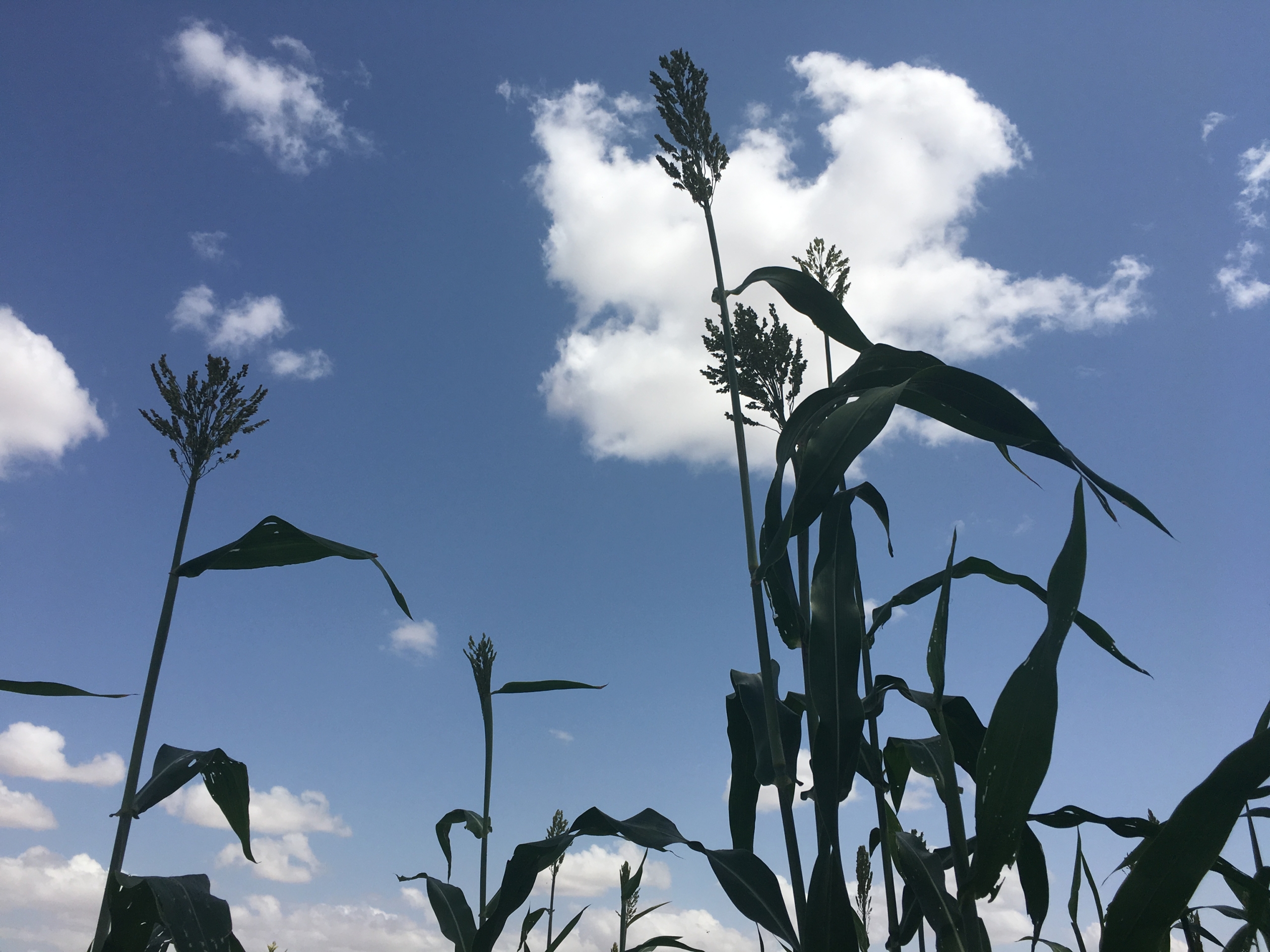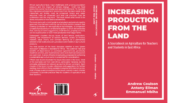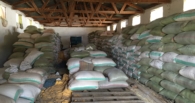New Alliance for Food Security and Nutrition in Malawi
An article by the New Alliance Country Facilitator
Hannock Kumwenda
17 June 2016
/
- 0 Comments
I have now learned this from my own experience: if a consultant works very long in one job, even if it is on a part-time basis, they lose their identity as a consultant. They become a staff member! And when that happens, and one has the personality of a free-flying bird like mine, it is time to leave!
I am talking 21 calendar months down the line – at the end of my assignment – as the G8 Facilitator of the New Alliance for Food Security and Nutrition in Malawi. Yes, there was something called ‘G8’ at the beginning of my assignment and it is no longer there at the end: it is now called G7. But once a name is given at birth, can you drop it? I think at a cost or else you live with it the rest of your life, and the client opted for the latter. The content of the assignment itself never really changed over the 21-month period. However, the scope of work had to be readjusted along the line and this happened once. An addendum had to be made to the initial contract and signed to accommodate the changes, which necessitated some budget reallocations but didn’t affect the overall ceiling.
This is my second news article in relation to the assignment, and let me connect you to the first article some 12 months ago th rough a cryptic predictive statement I made then: ‘I hope you can see that the first six months of my job may be the better part; the next twelve months require gloves and a thick skin! We have to face reality, but fortunately I will not be alone.’ Gloves and a thick skin indeed! Over the last six months I kept hearing the tormenting questions: What has the New Alliance achieved? Where is the New Alliance – we cannot hear of it anywhere? Is your achievement only reducing the number of policy commitments? And so forth. So in this article I will inform you of what we have managed to do in this assignment; what we can take as achievements; and then what have been the outstanding challenges which our client may have to consider to improve the delivery of similar assignments in future.
The main objective of my assignment was to assist government in improving opportunities for private-sector investments in agriculture, especially for food security and nutrition in Malawi. And to be more specific, my immediate interface in providing the assistance was the Ministry of Agriculture, Irrigation, and Water Development and the European Union Delegation. The assignment was premised on the idea that these two institutions did not have adequate human capacity and resources to coordinate the implementation of the New Alliance (NA) policy commitments involving government, donor partners, civil society, and the private sector. And so it was expected that my support would result in better coordination and improved implementation of the NA commitments. Now that we are at the end of the assignment, can we say that my support has achieved that?
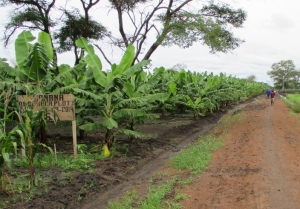
Banana farm at a New Alliance company
The assignment had seven contractual deliverables and I opt to classify them this way: policy priorities; progress reporting; coordination; private investments; dialogue; communication strategy; and meetings. Well, it is obvious that in this small space I cannot say much about all these deliverables. My interest will be focused on a few that I found more exciting if not challenging. And in some ways things like coordination, dialogue, communication and meetings seem to be closely related and talking about one may be the same as talking about the other; and I think in this way we may be looking at perhaps four distinct deliverables. So with your permission, despite the fact that we have managed to regroup them into four areas, I will be talking only about three of them: policy priorities, private investments, and, finally, the rest – under the heading ‘meetings’. I find progress reporting unexciting: we did this, we did that, and so forth, with a tint of boasting, frankly speaking, which would easily send you looking for the last paragraph and sentence in this article! So here we go, orderly …
On policy priorities for the New Alliance: do you remember one of the tormenting questions I reported earlier on – is your achievement only reducing the number of policy commitments? From 35+ policy commitments at the beginning of the assignment on 1st October, 2014, through a demanding policy reprioritization process, the New Alliance managed to prioritise 15 by the end of 2015. It took 15 months. According to the African Union, the mother body for the New Alliance, this is an achievement that stands out amongst African countries: many have not yet done it. The importance of the prioritization process need not be overemphasized: the New Alliance initially lacked focus and direction with its 35 commitments but it has now found some measure of order. The New Alliance is now amenable to implementation as stakeholders are able to see its intentions more clearly.
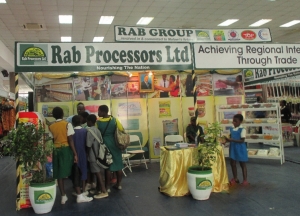
Primary school students admiring products for a company that has completed its investment intentions under the New Alliance
On private-sector investment: we have had two companies, out of 24 in the New Alliance, who have completed their investment plans. Perhaps money speaks better: out of the intended private investment of US$145 million, just over US$12 million (8.3 percent) has been completed. The estimates put nearly 40 percent to be on course; and another 40 percent that is moving slowly. These numbers are not that disappointing given that investments, especially large-scale ones, have a long gestation period and the New Alliance has only been around for about two years. I have seen some of these investments, but not that much of them. It has been the work of my colleagues under Grow Africa, a sister initiative to the New Alliance, who were really following through what has been happening with the private sector. I found it quite difficult in the early stages to link up with these people: they are based outside the country, and could sometimes mount sporadic and unannounced visits to the country without government or myself knowing. During my 21 months in this assignment, they have had three different country managers for Malawi! I have now understood the reason for such high staff turnover: they are transiting from a European base to an African one. However, Grow Africa have good plans for private-sector engagement in my country and all that they need is to get their act together. They were doing just that towards the end of my assignment: announcing their field missions in advance; taking time to brief the Ministry and myself and other local stakeholders on their findings; while developing a viable financing and marketing network for Malawian companies at the local and international level.
The New Alliance had many meetings over the period of my assignment but, unfortunately, none of them could live up to the standard of my favourite African meetings! As is well known, African meetings start on African time; and conclude in the same way. You know the date of the meeting, but you do not know what time the meeting itself will start, or finish. Do not worry about the time specified in the invitation letter; it is just there to fulfil protocol! The reason that the New Alliance could not live up to being a genuine African meeting is because of the diversity of its stakeholders: most of its resident development partners – the G7 group – are from the West. The Japanese are outnumbered. The private sector tends to be mixed up; only government is genuinely African. That meant that extreme tendencies could not dominate: some form of middle ground had to apply, and this compromised either the African or the Western extreme. Meetings of the governing structures of the New Alliance will be the focus of my attention, because the precise number of how many should be conducted was specified in my terms of reference. The first are meetings of the Core Team: a technical committee responsible for nearly all technical deliverables of the New Alliance. Secondly, there were meetings of the High Level Task Force (HLTF).
The Core Team was expected to meet six times over the course of my assignment but only managed to meet five times. I could only organise these meetings once the leader of the government technical team and the leader of the donor partner team agreed to the agenda; the date; and, the time of the proposed meeting. The two often agreed nearly all the time except on one occasion and, fortunately, reasons cannot be made public. All I can say is that none of the five Core Team meetings started on time; nor finished on time! And that was all right for my government colleagues, but I could sense a division among our Western colleagues: some had acclimatised to African conditions, they never came early for meetings! But others kept their hypersensitivity to etiquette based on timekeeping, showing up on time and excusing themselves immediately time was up! The good thing: most of the meetings were focused, productive, and hardly exceeded two hours. In short, we could have succeeded to have six Core Team meetings if it had not been for one rare disagreement!
The High Level Task Force met only once during my assignment. It is not an easy group to mobilise: right at the beginning of the assignment, the TOR expectation of six meetings was changed and made dependent on the availability of its members. The HLTF is made up of Cabinet Ministers, Ambassadors, and the Principal Secretaries of Ministries that are involved in implementation of policy commitments for the New Alliance. But to organise an HLTF meeting is not easy, and the only one that I helped organise took slightly over six months to execute. One has to find a date agreeable to the Lead Cabinet Minister and the Lead Ambassador; a date that is still no guarantee that the meeting will be held because one party can ask for a change as the time draws near. The character of the meeting is no different from that of the Core Team, but the consolation is that the time taken is even shorter. The HLTF takes decisions and observes progress; no discussions of how the technicalities of implementation should proceed.
But why should holding meetings be taken as an important deliverable for the New Alliance? In Africa, as I am not sure about other places, there is a joke that if you want to disrupt a process, appoint a committee to manage it! And yet the New Alliance finds committee meetings an important deliverable. That tells us a lot about the New Alliance – it is primarily a coordination mechanism: the getting together of several interlinked stakeholders to implement activities that have close linkages across different sectors. For example, the Ministry of Agriculture is responsible for issuing growing licences and estimating production for commercial crops; while the Ministry of Industry and Trade is responsible for issuing export trade licences. Some crops like maize or soya beans are restricted from export unless there is adequate production. To avoid frustrating trade when there is adequate production, or vice versa, these two institutions need to work closely together. Holding joint meetings, therefore, with the representation and participation of relevant stakeholders, is in itself a major achievement for the New Alliance because institutions that would often have worked in isolation on closely related activities can share information and resolve conflicting positions in good time.
The New Alliance will continue until 2022 but as for me, I leave with the feeling that the assignment has helped Malawi to get a better understanding of how to engage the private sector in agriculture-driven economic transformation. There is still room to improve on the pace of policy implementation by government and development partners through more robust capacity support. But perhaps most importantly, I have left at a time when the New Alliance knows much better the priority policy interventions for the private sector to invest into agriculture, having facilitated the reduction of policy commitments from 35+ to 15. We have helped to establish a clear vision: now is the right time to concentrate on implementation.
Many thanks to Mokoro and background work colleagues for this wonderful opportunity of working together. All the best!
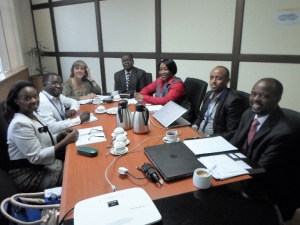
A working session at the EU offices with the visiting African Union Mission
To read Hannock’s last article on the New Alliance click here
You must be logged in to post a comment.

